Rasmus, a 15-year-old Danish student, had trouble sleeping at night and often went to school without enough sleep. Amid growing awareness of youth mental health, about 20 schools in Denmark have implemented the late start project after a two-year trial.
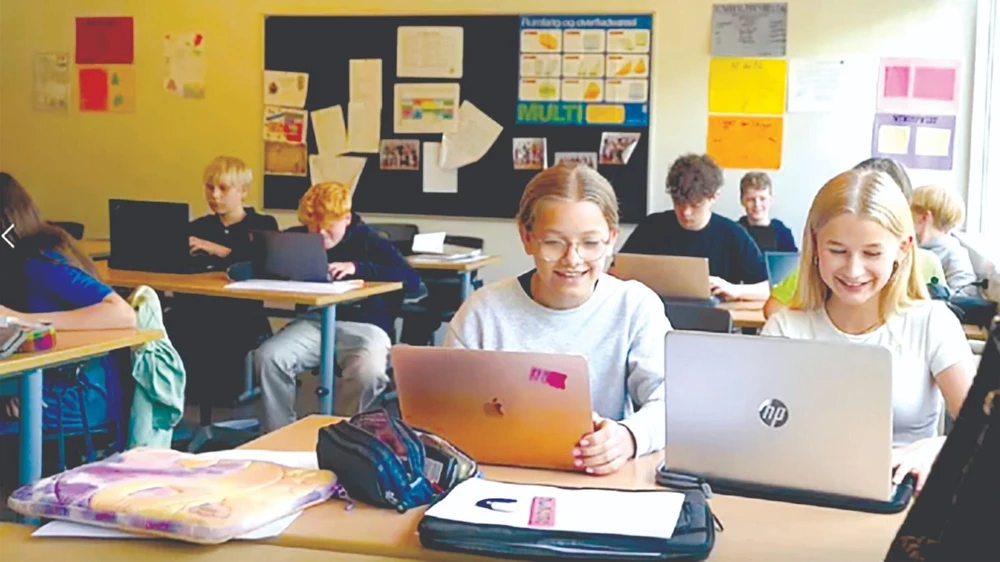
According to a report from the National Institute of Public Health , a research organization in Copenhagen, teenagers should sleep eight to 10 hours a day, but today, nearly 60% of 15-year-olds sleep less than that.
The report attributed the problem to changes in the body and the use of smartphones in the evening.
Melatonin - a hormone the human body secretes at night to induce sleep, and cortisol - a stress hormone that helps wake the body, are secreted later in the day in adolescents than in adults.
Cathrine Wimmelmann, a senior researcher at the Center for Child Health, said the consequences of too little sleep can lead to a risk of unhappiness, difficulty concentrating, and stress and depression.
Amid growing awareness of youth mental health, some schools in Denmark have experimented with changing school start times from 8:10 a.m. to 9:00 a.m. In 2022, Th. Langs Skole in Silkeborg, western Denmark, will begin allowing students aged 13-16 (grades 7-9 in Denmark) to start school at 9:00 a.m. instead of 8:10 a.m.
Since the change in school hours, Rasmus says: "I've been getting better quality sleep and falling asleep faster." The experience isn't limited to Rasmus. "Before, we were very tired and quite upset in the morning. Sometimes I felt sleepy and didn't really care about the lessons," says Emily, a 15-year-old student at Th. Langs Skole.
"But then, when school starts at 9 a.m., we have more fun, talking to each other instead of looking down at our phones," Emily added.
Th. Langs Skole has partnered with Danish tech startup Enversion to track the sleep of students in grades 7 to 9 through an app.
Based on surveys on the app, the school found that students slept an average of 7 hours and 58 minutes during the monitoring period, as well as improvements in sleep duration, sleep efficiency and fatigue over the first three months of the initiative.
The story of Th. Langs Skole has gone viral across the country and inspired many other schools over the past two years.
While experts believe this is a promising initiative, given the physiological characteristics of adolescents, they still say that simply changing school start times is not enough.
Addressing behaviors such as phone use or physical activity may help improve or support the effectiveness of later school start times.
"In Denmark, many schools have implemented initiatives without a scientific evaluation of the methodology, which only refer to sleep duration. However, that is only half the story, because we mainly look at sleep duration and not sleep quality, while both impact cognitive abilities, social abilities and the like," said expert C. Wimmelmann.
LAM DIEN
Source: https://www.sggp.org.vn/vao-hoc-muon-de-cai-thien-suc-khoe-post758309.html


![[Photo] Keep your warehouse safe in all situations](https://vphoto.vietnam.vn/thumb/1200x675/vietnam/resource/IMAGE/2025/10/1/3eb4eceafe68497989865e7faa4e4d0e)

![[Photo] President of the Cuban National Assembly visits President Ho Chi Minh's Mausoleum](https://vphoto.vietnam.vn/thumb/1200x675/vietnam/resource/IMAGE/2025/10/1/39f1142310fc4dae9e3de4fcc9ac2ed0)

![[Photo] Hanoi morning of October 1: Prolonged flooding, people wade to work](https://vphoto.vietnam.vn/thumb/1200x675/vietnam/resource/IMAGE/2025/10/1/189be28938e3493fa26b2938efa2059e)



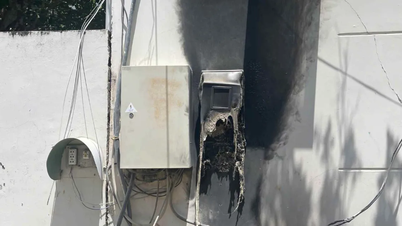

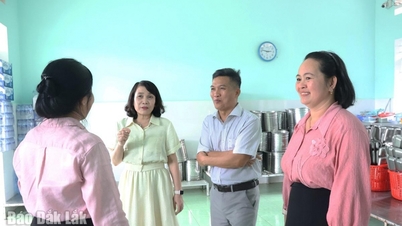



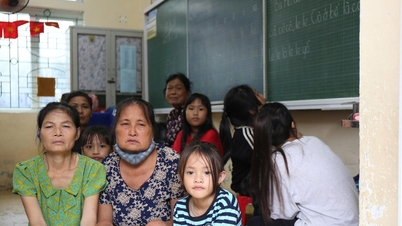












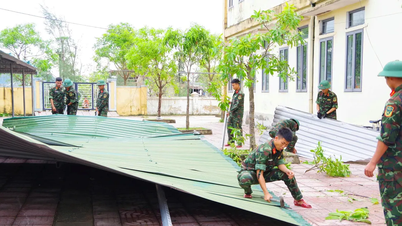



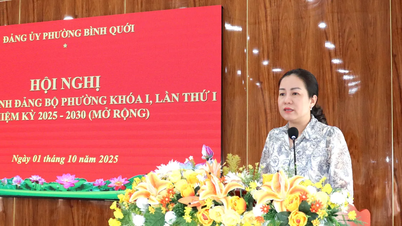































































Comment (0)